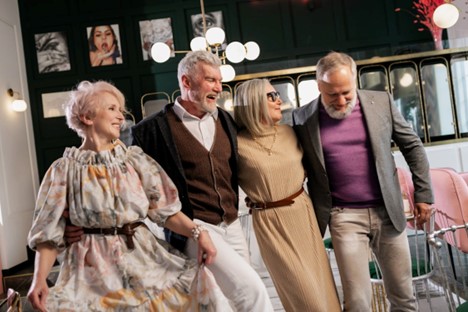How Social and Cultural Activities in Independent Living Support Health and Happiness
A vibrant social life is key to maintaining a happy and healthy lifestyle, especially as we age. Independent living communities are recognizing this need by offering a variety of social and cultural activities designed to enhance residents’ quality of life. These activities aren’t just enjoyable; they contribute significantly to physical, emotional, and mental well-being. Here’s a closer look at how these activities make independent living a fulfilling experience for older adults.
- Boosting Mental Health and Reducing Isolation
Isolation is one of the biggest challenges seniors faces, and it can take a toll on both physical and mental health. Social activities, such as group outings, art classes, and community dinners, provide a sense of belonging and purpose. Through:
- regular interaction
- residents develop friendships
- build a support network
which can alleviate feelings of loneliness. Studies have shown that people who are socially engaged are at a lower risk of depression and anxiety, which often stem from isolation. Furthermore, engaging in cultural activities—like visiting art galleries, attending music performances, or participating in book clubs—stimulates the mind, helping to keep it sharp and engaged.
- Encouraging Physical Activity
Many independent living communities incorporate physical activities into their social programs, such as:
- dance nights
- walking clubs
- gentle exercise classes like yoga or tai chi
These activities improve:
- mobility
- strength
- balance
which can reduce the risk of falls and other injuries. Physical activity is crucial for maintaining cardiovascular health, muscle strength, and joint flexibility, all of which contribute to an independent lifestyle. Exercising together also creates camaraderie and a shared sense of accomplishment, making it easier to stick with fitness routines.
- Enhancing Cognitive Health
Social and cultural activities engage cognitive functions in numerous ways. Games, puzzles, and trivia nights stimulate memory, problem-solving, and reasoning skills. Learning new skills, such as:
- painting
- knitting
- foreign language
helps to form new neural connections, which can slow cognitive decline. According to research, older adults who continue learning and challenging their minds have a lower risk of developing dementia and other age-related cognitive issues. Engaging in stimulating activities as a group also promotes discussions and shared learning, further enhancing cognitive health.
- Creating a Sense of Purpose and Self-Worth
Participating in community events, volunteering, or organizing group activities fosters a sense of purpose. Many independent living communities encourage residents to take an active role in planning and hosting activities, empowering them to contribute and take ownership of their social experiences. When seniors can lead or contribute to their community, it boosts self-esteem, self-worth, and a sense of achievement, all of which are essential for mental well-being.
- Strengthening Emotional Resilience
Social and cultural activities allow residents to connect with others who share similar life experiences, which can create a comforting and empathetic environment. Peer support plays a powerful role in helping individuals navigate:
- life changes
- health challenges
- losses
Through shared experiences and open conversations, residents often feel understood and valued, building emotional resilience. Activities that encourage self-expression, such as:
- music therapy
- painting
- journaling workshops
can be especially healing, as they provide an outlet for emotions.
- Promoting Cultural Enrichment and Lifelong Learning
Cultural events, like guest lectures, art exhibitions, or musical performances, offer opportunities for lifelong learning and cultural enrichment. Exposure to new ideas and artistic expression can foster curiosity and inspire creativity, providing mental stimulation and a renewed appreciation for the world. These experiences also add variety to daily routines and break the monotony, leading to greater satisfaction and excitement for life.
- Building a Stronger Community and Social Connections
When residents engage in group activities, they form bonds with one another, creating a sense of community and friendship. These connections provide a support system that can uplift residents and contribute to their overall happiness. Residents who are part of a strong community often report feeling more connected, safe, and valued, which translates to a more positive outlook on life.
To learn more, check out this summary from Riverside Health.
Social and cultural activities in independent living settings are more than just entertainment; they are essential tools for fostering health, happiness, and a strong sense of community. Through these activities, residents find purpose, build meaningful connections, and enjoy physical and mental well-being. Independent living communities that offer robust social and cultural programs are helping their residents thrive, ensuring that this chapter of life is as fulfilling, engaging, and joyful as possible.
Enhance your cognitive abilities and optimize mental focus by incorporating the remarkable Brain Vitale supplement from the esteemed Asher Longevity Institute. This exceptional supplement is specifically designed to boost your brain’s performance, enhancing mental clarity, sharpening cognitive planning skills, and improving organizational acuity. Additionally, it aids in retaining spatial relationships, further augmenting your cognitive capabilities.




